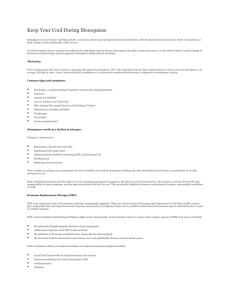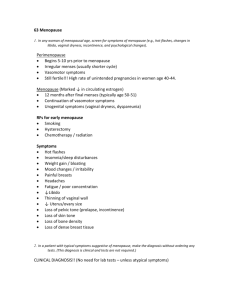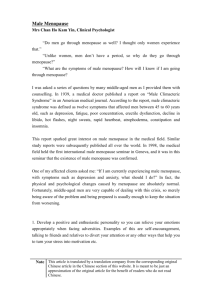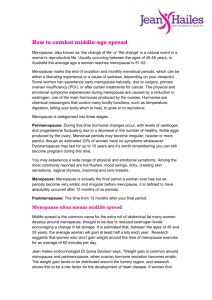High Blood Pressure in Pregnancy May Spell Hot Flashes Later
advertisement
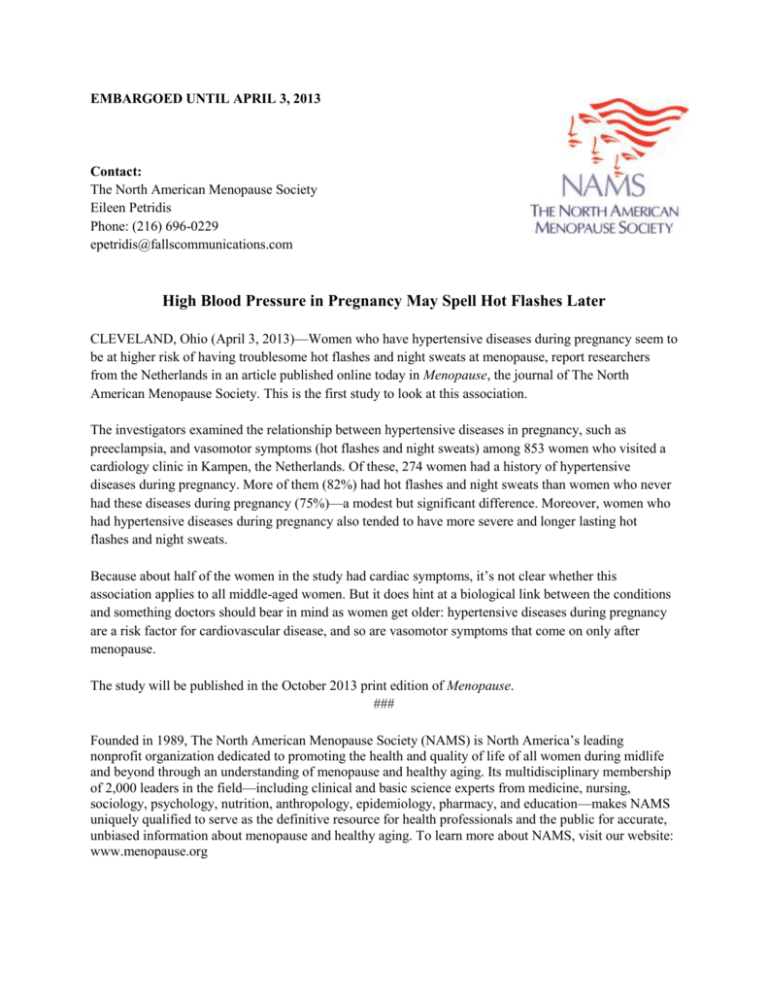
EMBARGOED UNTIL APRIL 3, 2013 Contact: The North American Menopause Society Eileen Petridis Phone: (216) 696-0229 epetridis@fallscommunications.com High Blood Pressure in Pregnancy May Spell Hot Flashes Later CLEVELAND, Ohio (April 3, 2013)—Women who have hypertensive diseases during pregnancy seem to be at higher risk of having troublesome hot flashes and night sweats at menopause, report researchers from the Netherlands in an article published online today in Menopause, the journal of The North American Menopause Society. This is the first study to look at this association. The investigators examined the relationship between hypertensive diseases in pregnancy, such as preeclampsia, and vasomotor symptoms (hot flashes and night sweats) among 853 women who visited a cardiology clinic in Kampen, the Netherlands. Of these, 274 women had a history of hypertensive diseases during pregnancy. More of them (82%) had hot flashes and night sweats than women who never had these diseases during pregnancy (75%)—a modest but significant difference. Moreover, women who had hypertensive diseases during pregnancy also tended to have more severe and longer lasting hot flashes and night sweats. Because about half of the women in the study had cardiac symptoms, it’s not clear whether this association applies to all middle-aged women. But it does hint at a biological link between the conditions and something doctors should bear in mind as women get older: hypertensive diseases during pregnancy are a risk factor for cardiovascular disease, and so are vasomotor symptoms that come on only after menopause. The study will be published in the October 2013 print edition of Menopause. ### Founded in 1989, The North American Menopause Society (NAMS) is North America’s leading nonprofit organization dedicated to promoting the health and quality of life of all women during midlife and beyond through an understanding of menopause and healthy aging. Its multidisciplinary membership of 2,000 leaders in the field—including clinical and basic science experts from medicine, nursing, sociology, psychology, nutrition, anthropology, epidemiology, pharmacy, and education—makes NAMS uniquely qualified to serve as the definitive resource for health professionals and the public for accurate, unbiased information about menopause and healthy aging. To learn more about NAMS, visit our website: www.menopause.org
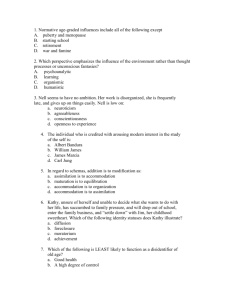
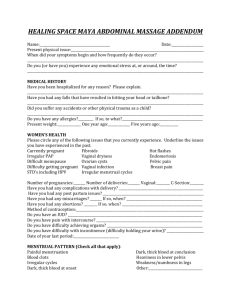
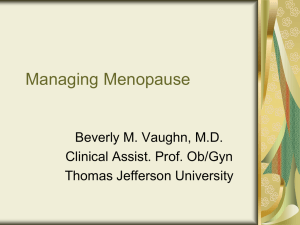
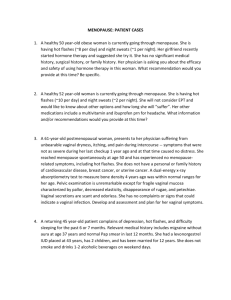
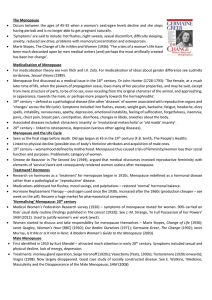
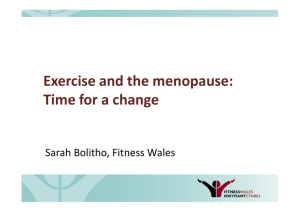
![Women's Health at All Ages Menopause.ppt[...]](http://s3.studylib.net/store/data/009081937_1-c188687977d4aa413ffb8558c5e0c10f-300x300.png)
